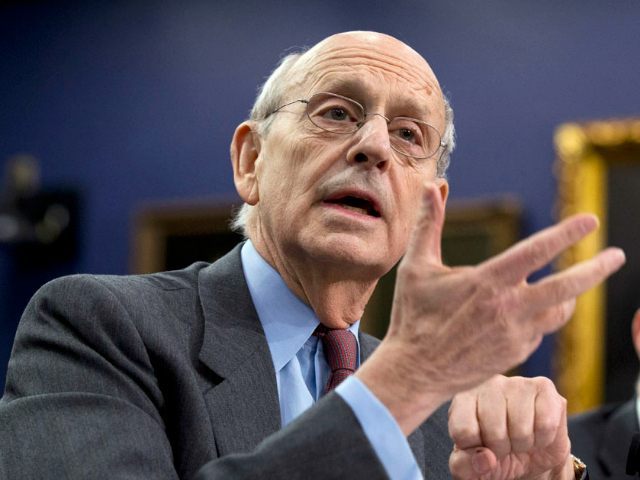Justice Stephen Breyer will not express an opinion on Donald Trump as a presidential candidate, in keeping with two centuries of Supreme Court tradition. But he did express an opinion on a related point: American courts are unlikely to allow Muslims to be held in detention camps.
During an interview with ABC, Justice Breyer was asked about Trump’s controversial remarks regarding Muslims and also for his opinion on the billionaire’s run for the White House.
“I think every person in the United States has a right to an opinion on that which he can express publicly, except for me,” the justice said regarding Trump’s candidacy. “A judge has to do his best not to have an opinion on political matter,” he explained. He added that he might privately express such personal views to his wife, but he would not share them publicly.
Justice Breyer’s response is the one expected of all Supreme Court justices, who are supposed to stay out of elections and politics. Federal judges often must rule on election-law disputes in contested elections, and so remain publicly nonpartisan to avoid the appearance that they prefer one candidate or party over another.
He did offer one comment relevant to Trump’s plan to temporarily ban all Muslim immigrants, specifically when Trump referenced the fact that during World War II, FDR confined Japanese-Americans to internment camps.
(To be clear, Trump never said he supported internment camps, either for Japanese-Americans at the time, or for Muslims now. Instead, he called them awful–but said he did not know for certain how he would have thought of them if he had been living at the time. Even raising the topic, however, caused a stir in some circles.)
FDR effectively imprisoned these citizens through Executive Order 9066, keeping them in government camps and depriving them of freedom of movement. The order was challenged in court. In Korematsu v. United States, the Supreme Court sided with FDR, effectively holding that the president wielded such power as a wartime necessity to thwart espionage and other activities that would undermine the war effort.
President Ronald Reagan condemned that decision and apologized to the descendants of those American citizens when he signed the Civil Liberties Act of 1988, granting reparations to the victims. “The internment of individuals of Japanese ancestry was caused by racial prejudice, war hysteria and the failure of political leadership,” the statute reads.
At age 77, the justice commented that he did not know any judges who thought Korematsu was correctly decided and added, “This country has developed a stronger tradition of civil liberties.”
Justice Breyer was appointed by President Bill Clinton, previously served as a federal appeals judge, and worked as a professor at Harvard Law School.
Ken Klukowski is legal editor for Breitbart News. Follow him on Twitter @kenklukowski.

COMMENTS
Please let us know if you're having issues with commenting.